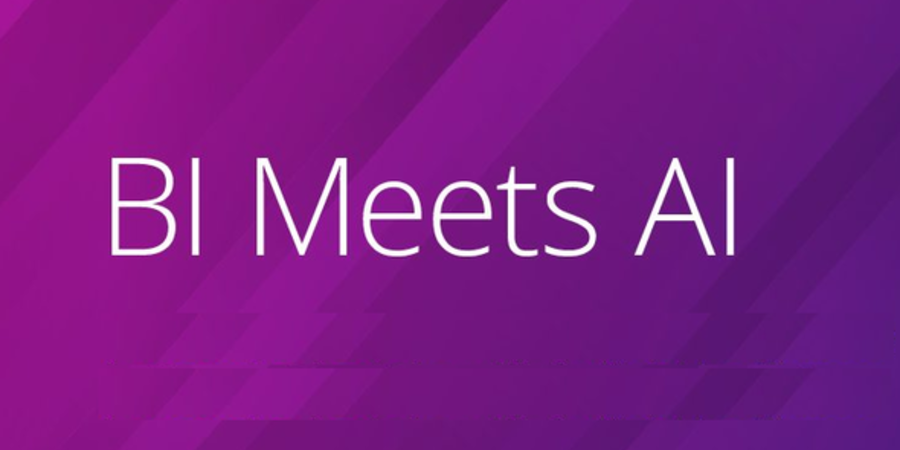Artificial Intelligence-Driven Marketing: Elevating Your Company Strategy
In the current swift virtual environment, companies are always looking for novel strategies to stay ahead of the market. One specific transformation is the implementation of AI into promotional efforts, which has become a turning point for organizations of all sizes. By utilizing the capabilities of AI, businesses can not just streamline their functions and additionally improve customer engagement and achieve higher sales.
The edge of using AI in business extends beyond mere streamlining. It allows businesses to analyze vast amounts of information in instantaneously, obtaining insightful knowledge into buyer tendencies and choices. This allows for more focused promotional strategies, tailored interactions, and in the end, enhanced user happiness. As artificial intelligence continues to progress, its potential to revolutionize the business landscape is gaining increasingly clear, making it an crucial asset for those wanting to improve their marketing approach.
Understanding AI in Marketing
AI is transforming the marketing landscape by offering businesses with advanced tools and techniques to boost their approaches. By utilizing vast amounts of data, AI enables marketers to gain deeper insights into customer behavior and preferences. This allows businesses to create highly personalized marketing campaigns that connect with their target audience, ultimately fostering engagement and boosting sales.
Furthermore, AI tools can streamline various marketing processes, from creating content to dividing customers into segments. This streamlining allows teams to save time and resources while ensuring uniformity in their advertising. By employing AI algorithms, businesses can analyze data in real-time, allowing for rapid adjustments to campaigns based on performance metrics, thus enhancing return on investment.
Furthermore, AI supports anticipatory analytics, helping businesses predict future trends and consumer behaviors. By examining historical data, AI can detect patterns that guide strategic decisions. This forward-thinking approach prepares businesses with the ability to stay on top of the competition and adapt to shifting market conditions, making AI an essential asset in contemporary marketing.
Game-changing Benefits of AI Tools
AI tools have transformed the way organizations operate by improving productivity and output. These technologies can streamline routine processes, permitting employees to dedicate their time to more high-level activities. By minimizing manual effort, businesses can not only conserve time but also lower the likelihood of faults that come with human intervention. machine learning leads to streamlined processes, making companies more flexible to customer demands.
Another considerable gain of integrating AI into business operations is the ability to process vast amounts of data quickly and precisely. With AI, organizations can gain insights from consumer behavior, industry trends, and competitive analysis in real time. These findings enable considered decision-making, helping organizations to customize their advertising strategies effectively and meet consumer needs more accurately. The power to project trends and analyze customer data fosters a more personalized approach, enhancing consumer experiences.
Moreover, AI solutions facilitate improved customer interactions, providing businesses with the ability to connect to customers through chatbots and virtual assistants. These solutions can manage inquiries at all times time, offering immediate responses and support. This not only improves client satisfaction but also creates businesses to maintain a consistent connection channel with their audience. As organizations continue to embrace AI, they foster more meaningful connections with their clients, driving fidelity and sustained success.
Implementing Artificial Intelligence Approaches Effectively
To utilize the full power of AI in organizations, it is essential to start with a clear strategy. Businesses should initially determine areas where AI can make the highest impact, such as support services, automated marketing, or data analysis. Engaging with stakeholders across various teams will provide understandings into specific challenges that AI can help solve. By establishing quantifiable goals, firms can determine what achievement looks like and align their initiatives appropriately.

Training and training employees is another key element of successfully carrying out AI approaches. It's crucial to ensure that staff members grasp the systems and can utilize it to its maximum capability. Offering resources and educational sessions will equip employees to utilize AI tools assuredly, nurturing a environment of creativity within the company. This focus in human capital can lead to better collaboration and boosted output as teams work in conjunction with AI to deliver results.
Additionally, businesses should continuously monitor and assess their AI projects. Acquiring statistics on performance metrics will allow companies to know what is successful and what may need tweaking. Regular reviews can help in improving AI implementations, ensuring they stay relevant and efficient. By staying adaptable and responsive to evolving market conditions, organizations can keep a competitive edge and fully realize the value that AI has to offer.